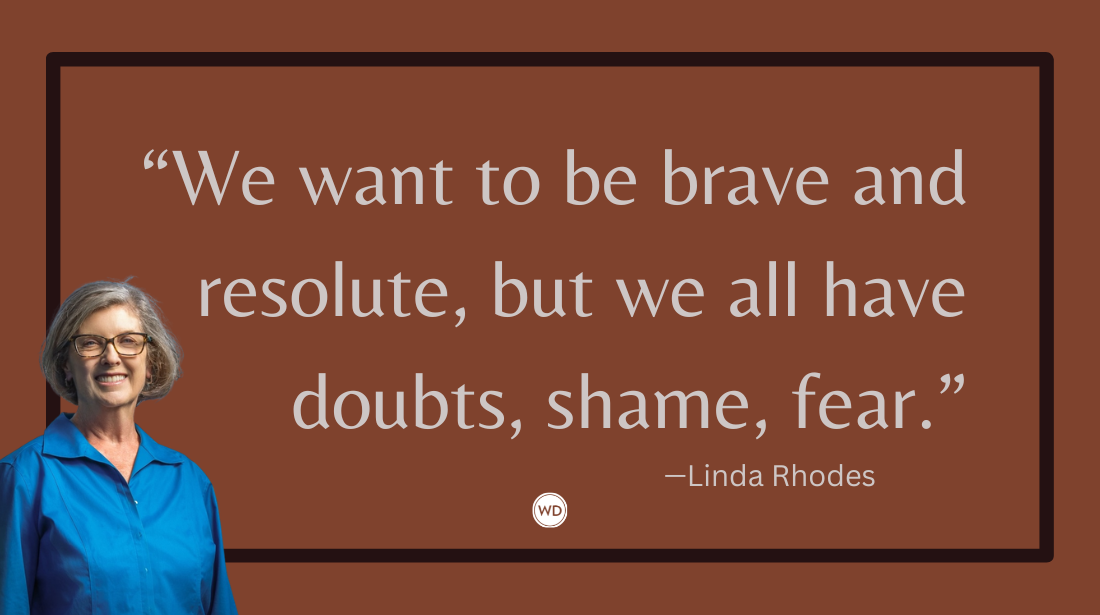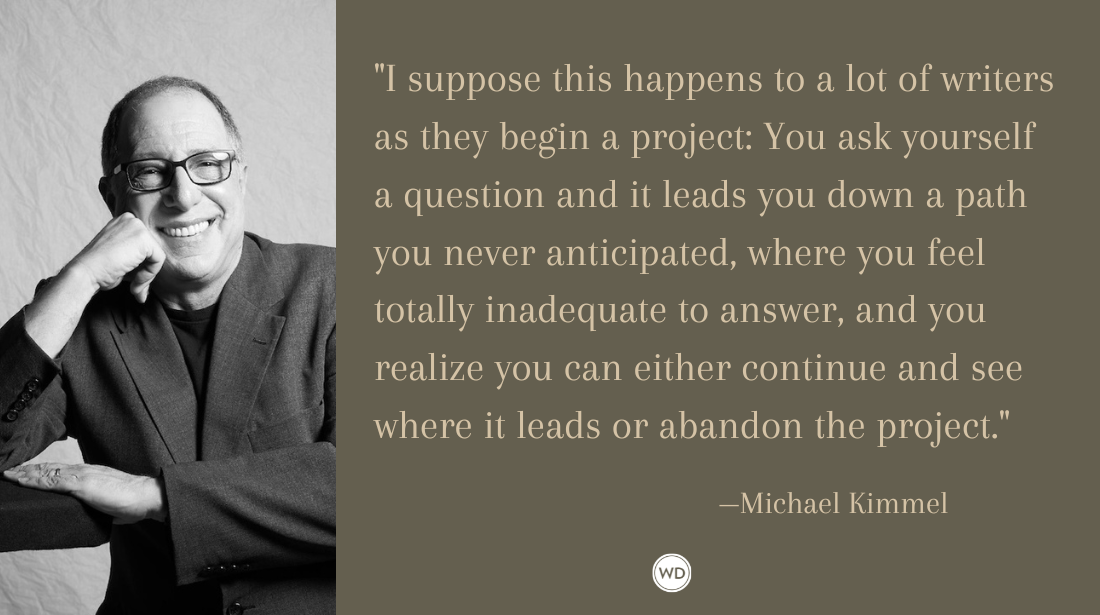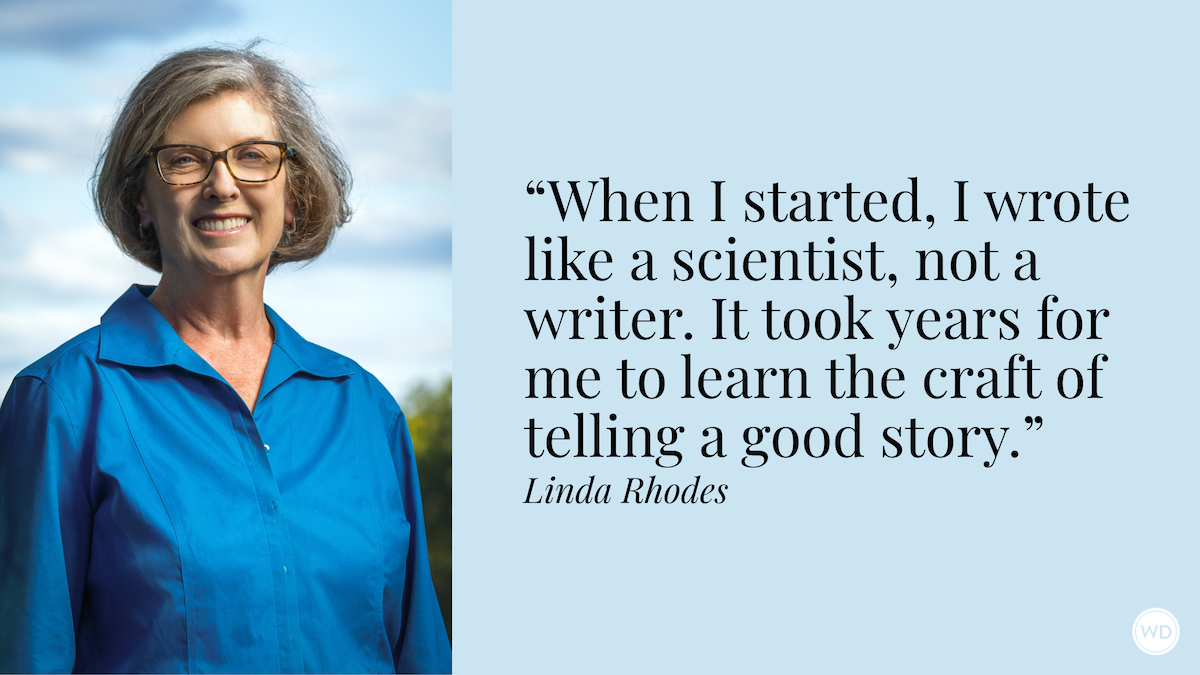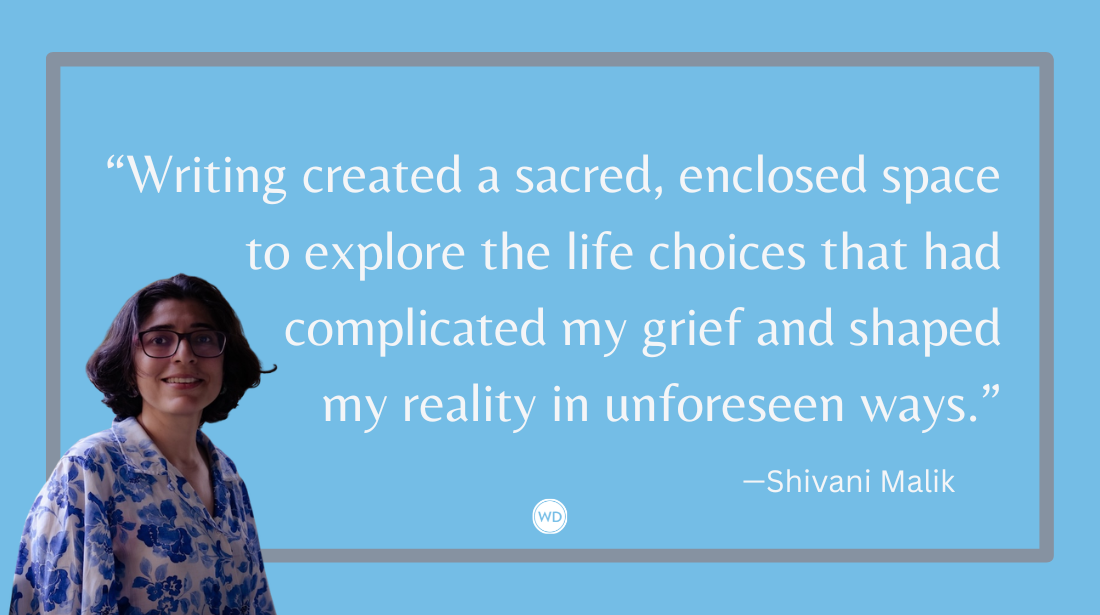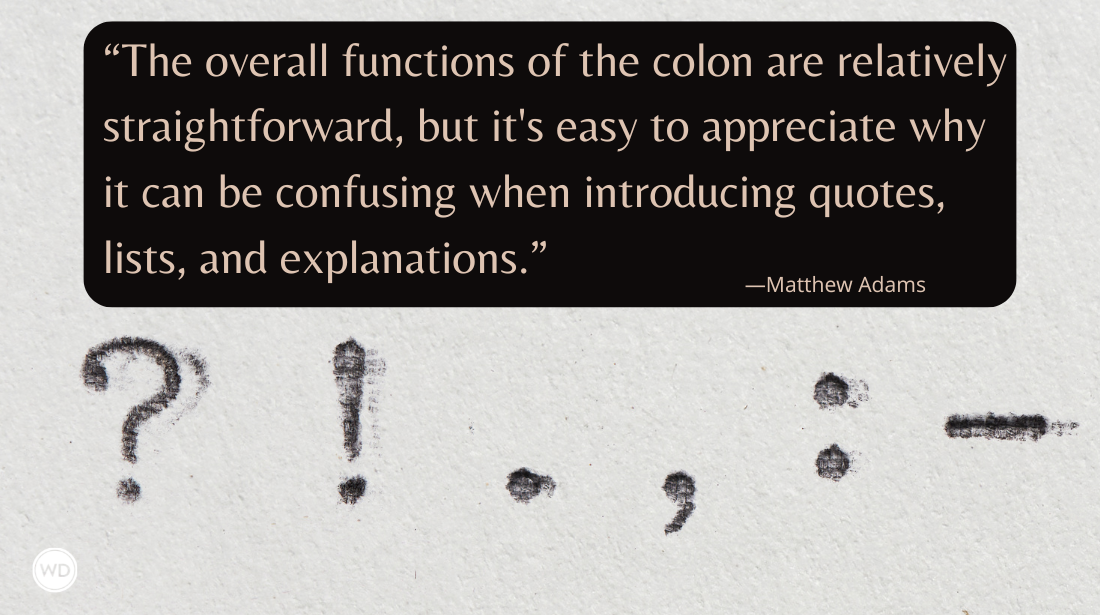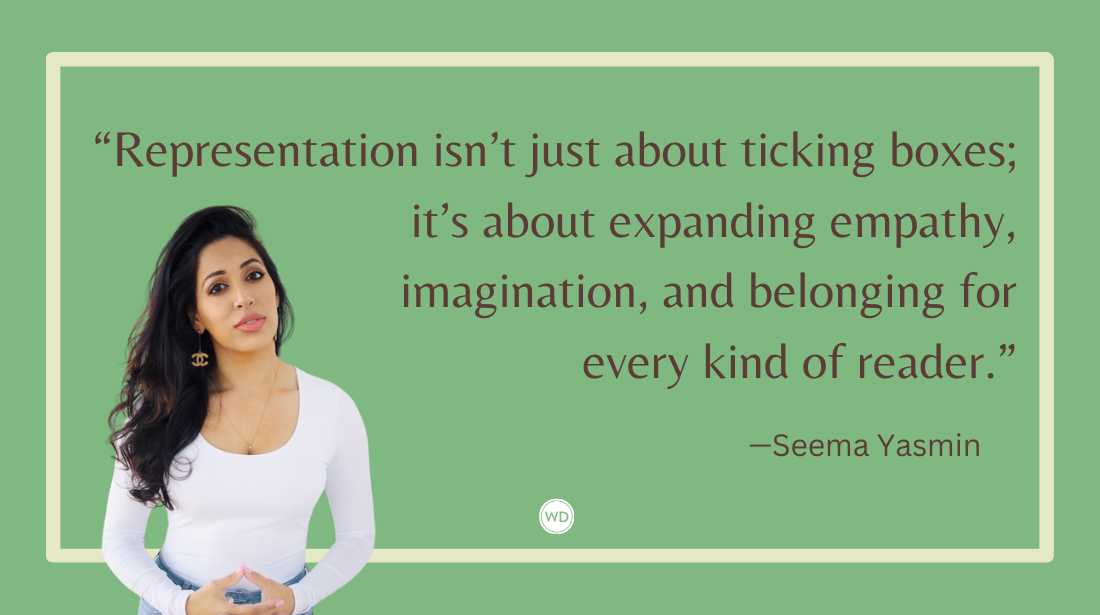Writer’s Digest 94th Annual Competition Inspirational/Spiritual Essay First-Place Winner: “All the Way to Mystery”
Congratulations to Stacy Clark, first-place winner in the Inspirational/Spiritual Essay category of the 94th Annual Writer’s Digest Writing Competition. Here’s her winning essay, “All the Way to Mystery.”
Congratulations to Stacy Clark, first-place winner in the Inspirational/Spiritual Essay category of the 94th Annual Writer’s Digest Writing Competition. Here’s her winning essay, “All the Way to Mystery.”
All the Way to Mystery
by Stacy Clark
The waves come and come. Don’t give in, don’t give in, I silently whisper. I run down the suburban path, wending beneath the leafy oaks. Tripping on snarls of roots bursting up through the asphalt, I do not fall. Not this time. I run on. To the pace of classic rock.
Some days the wind is at my back, nudging. On this day, I am running into the wind. Waves of sweet, spring air coming at me as I push toward, forward, against. It is harder. Often. Lately. Don’t give in, don’t give in, I silently whisper like a mantra deep inside.
Around the bend, crepe myrtles in bloom. A gust loosens a shower of color. Pinkish petals fluttering like butterflies, only falling down. Don’t give in, don’t give in. Let the beauty take you all the way to mystery, I whisper to the sleeping part of my soul.
Silence is my superpower. So, I hope, is following beauty.
Silence is awkward for a writer, who writes about life.
For a mother who encourages her daughters to speak up.
For a woman with a diagnosis she can only run toward, not beyond.
The difference is in one letter. “A” means acute. An all-out, immediate battle to the other side. “C” means chronic. A wait in the shadows for what is gathering like a coming storm. I am grateful for the “C,” and yet, living into something can be hard to explain.
Living in a palm-lined Florida suburb, I raised two daughters. When I came home that startling day, the daughters still lived with us, a high schooler and a young professional diverted by a pandemic.
“You have to tell them. Tell them now,” my husband insisted after meeting me in the driveway with a shaky smile.
He called them down from their bedrooms into the kitchen. But what would I say?
My older daughter knew what to say. “Mom,” she explained when I told her, “It’s like nothing has changed and everything is different.”
At first, I told a few friends. The sister of a brother waved it off with a story of how he survived. The nutritionist gave me nutrition. The born again gave me God. The optimist brought optimism. One friend brought coffee. She arrived on my porch with to-go cups in hand, and we sat outside on the back lanai and looked at life without blinking.
Quickly, I went silent. I was fine. Nothing had really changed. Except I drove fifteen minutes down the road to Moffitt Cancer Center for a blood check every three, and then six, months. Except a friend texted me every Sunday to see how I was, even if I was fine.
Life carried on. I ran half-marathons. I celebrated birthdays. I said goodbye to the daughter moving away for her job, the daughter going off to college, the dog that had been here for all the growing up. I went back to work for an ad agency downtown.
Everybody went back to life as usual, with the rare exceptions.
Before one appointment, I meet a friend, the kind of friend who marks her calendar and invites me for coffee before I go to see if my blood cells have picked up speed. She and I sit sipping warm coffee at a high-top table and, fine as I am, I tear up. Silence had made fear fall into the background. A quiet brewing, unnoticed, unreal. Talking makes it real. My friend says hiding fear is like trying to keep a beach ball under water.
When it is time to go, I tell her I have to pull myself together. “You can’t cry on the way into Moffitt,” I say.
She laughs. Wonders why. Says, “There’s a story there.”
Why not cry? Because Moffitt people are caring, from the cheerful valet to the smiling greeter who directs your lost-looking self to the Hematology Department. If you cried, I think, they would care like a four-alarm fire. But more so, if I am honest, I do not want to be noticed. I do not want to be cared for. I do not belong in this story.
Belonging is the heart of this story.
No longer am I the heart of my family with two growing lives spinning around me. No longer am I making lunches, driving carpool, reading stories in small beds tucked shoulder to shoulder as if we had all the time in the world. Where do I belong now?
When life is pulling you toward the daily responsibilities of motherhood, there is scarce time to ask about belonging. To wonder what life is asking of you. I went from childhood to adulthood to motherhood. What hood am I in now?
There are wayward cells at the deepest part of me. There is loss at the heart of me. The me that wrapped my days around mothering. The juggler of school papers and dentist appointments, art classes and piano lessons. My daughters used to call me “The Great Scheduler of All Things.” Now they tease I am “The Not Very Good Scheduler of Much.”
When I left my younger daughter on the sidewalk beside her newly stuffed college house, I felt as if I had been mugged, and they took everything. Here on the empty margins, I have had to face myself head on.
Unbecoming. Rewilding. Surrendering. The story travels these unfamiliar grounds.
When you are running toward a storm, even on a sunny day, everything has changed.
Silence is no superpower.
Some days feel like bailing sloshing emotions out of the emptiness so I will not sink.
One day, a friend tells me she went looking for wild ponies on an island. She found pony hoofprints and pony poop so fresh it was still steaming. She did not see a single pony.
She poetically decides this is faith. The evidence clear, the mystery remains unseen.
What am I looking for? Her wild ponies make me think of rewilding golf courses. Where the fairways and the greens are left to revert to their natural state. The wildlife returns.
Now that my children are grown and I am running toward the storm, I like the idea of rewilding. Though I am not sure how wild I can get on a cul-de-sac in suburban Florida.
That night I dream of a whole herd of wild ponies galloping toward me.
I read that some golf courses get turned into Super Targets, and I wonder if it is better to try and stay who we are. Being a fairway is better than a parking lot.
Small miracles, small miracles, I remind myself in silent deep-down whispers.
I cannot see the edges.
Beauty in all its rawness and nowness is the only place I have found I am able to stand. I tell myself, if things get bad, I will get a tattoo on the inside of my wrist, delicate, almost indecipherable script meant only for me saying: Beauty all the way.
I believe in beauty. Except at Moffitt.
The first couple years, I went into Moffitt head down, tucked away. No beauty there. Only something invisible ravaging human life, and life, and life. Hope wafting like ragged flags as families pushed wheelchairs, held hands and held tight.
I did not belong in this story.
Nearly four years have passed since I embarked on this unchosen journey. As fine as I am, the Sunday texts and the pre-appointment coffees unfailingly continue. During one of these coffees, my friend says with a smile crinkling the corners of her eyes,
“There’s beauty at Moffitt, you know. Even there.” “No,” I quip. “Where have they been keeping that?”
Maybe in the painted stones of the flowerless garden outside the front door. On my way into Moffitt right after this beauty conversation, I see the stones. A leave-one, take-one offering of stones painted with hearts, stars and words of hope. Silent messages saying I see you, I know you, hold me in your hand, I’ll go with you, as far as we can go. I pick up a stone with the word “Hope” and wrap my fist around it, hidden in my pocket as I wander through my appointments.
When I leave, I set the stone back in the garden. A few days later, when I return for a follow-up, I put my own painted stone in the garden. Hot pink with rays like a sun. I’m no painter, yet it has its charm.
I never go back to see if anyone picks up my stone. This is not that kind of give and take. You give, and what happens next is not up to you.
Recently, a friend gave me a book, a YA novel, purportedly lighthearted. She is the one who came with the to-go coffee, but she is innocent here. The main character is a sentient typewriter, helping a family solve a mystery. How dangerous could it be?
There, in the end, I am crying softly as the family solves the mystery of a missing mother. They drive all night and find her high up on her rock of safety. She has run away from what has returned to her body, what she fears will take her family down this time.
The relieved family entices her down from her rock, they wrap their arms and love around her no matter what comes. And they know what is coming.
My snuffles and sleeve wipes carry on after the last page. I slip into the bathroom to avoid my husband, daughter and tear-licking dog on the couch catty corner to mine.
The sobs go on for a good twenty minutes. It’s a typewriter for Pete’s sake.
It’s this. When I run for safety, will my family come and wrap around me? I am afraid they will find me. I am afraid they will not look.
That startling day I stood on the sidewalk at Moffitt, minutes after the doctor had gently, matter-of-factly handed me a diagnosis, my brain clouded with thoughts. I did not know what would happen, how good, how bad. The most actionable thought: Do not go home.
The valet took a while to bring my car. Even I knew, even then, I could not run away from me. I could not find safety on a rock. But the desire to flee was like a mother’s need to push her newborn into the world—volitional and not of her say. The only handhold I saw was truth. The known and unknown, felt and not felt, set forth and apart. Squinting into the sunlight on the sidewalk, I vowed to stand there. I vowed to not turn away.
Holding out for truth led to silence. I could not bear the push for positive thinking, the cheer handed out like candy. It slayed me. Still does. I feel guilty. As if I have somehow failed to think my way out of this. Positive thinking feels like chasing a butterfly.
Beauty cannot be chased.
After all these coffees, texts and runs, I have learned there are rocks in a secret garden hiding in plain sight. I have learned, sometimes, in the stillness, beauty finds you.
Like on a run into the wind when the petals fall across your path.
Beauty comes in its own time. Disguised in the dark.
Heading to my most recent appointment, I drive up to Moffitt. Inching through the valet line, with rogue cells in the marrow of my bones, I am spontaneously singing along to AC/DC. Head-bobbing, voice-screeching, body-wiggling singing. When George Thorogood’s Bad to the Bone comes on, I smirk and eye the sky.
There are times I give in to the waves of despair. I can feel them, those wayward cells elbowing out the healthy ones. I keep running toward, because it is better than away. Truth always gives back. I do not want to miss the beauty no matter its duck and cover.
Slowly, though, I am beginning to put my faith in the story I am, in the wild mystery coming at me like a butterfly, like a galloping herd.
When I can, I surrender, which is not the same as giving in. More a waking of the soul.
Beauty carries us forward.
I am hoping it can take me all the way home.




